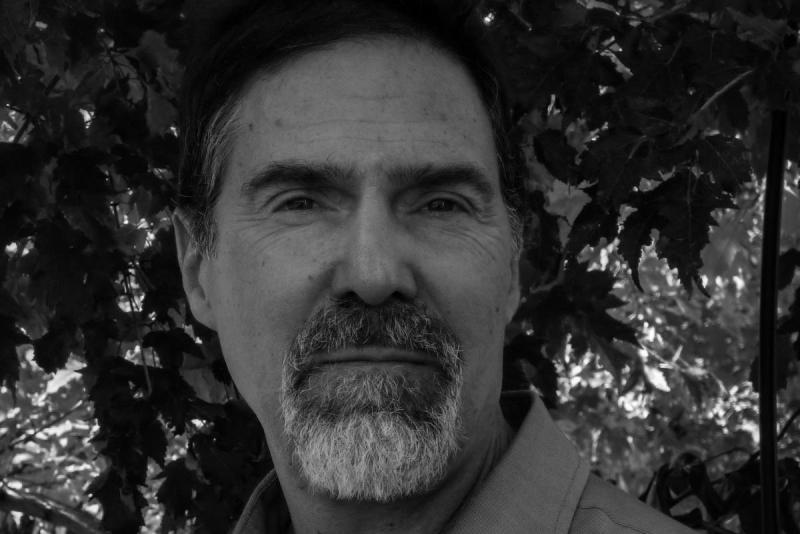CAHSS English Professor Explores Multidisciplinary & Multimedia Work as a Form of Social Activism

W. Scott Howard
Reading encyclopedias and stories about world history, travel and the sciences as a child growing up in Englewood, N.J., kindled W. Scott Howard’s lifelong passion for literature.
“My parents did not go to college, but we had a lot of books at home,” he said. “During my elementary school years, I had wonderful teachers (including my parents) who encouraged me to follow my interests.”
By junior high, Howard’s emerging reading and writing talents had captured the attention of his eighth-grade teacher, who predicted “you’re going to be an English professor someday.”
Her words proved prescient. The long-time DU professor in the Department of English & Literary Arts majored in English and French at Lewis & Clark College in Portland, Ore. During his junior year abroad, Howard traveled to France and studied at l’université Paul-Valéry-Montpellier.
“That experience opened up my world in so many ways,” he recalls. “Montpellier was then (as it is today) a cosmopolitan city. I became friends with fellow students from France, Angola and Morocco, Norway, England, Spain, Canada and the U.S. We would talk late into the night at our favorite cafés. I commuted to the university on my moped. I was living the dream.”
Howard went on to earn a master’s degree in English from Portland State University, where he taught for two years while studying. He later worked at the beloved independent Powell's bookstore in Portland (the Burnside store) where he managed the literary criticism section and co-managed the newly opened section dedicated to small-press publications and literary journals. Those experiences shaped the direction of his scholarly and creative paths.
“During those years (1990-93) before computerized inventory, the section managers were responsible for building their collections,” he said. “That’s where I started reading Susan Howe’s work along with publications from so many wonderful writers, including Lorine Niedecker, George Oppen, Nathaniel Mackey, William Bronk, Lyn Hejinian and Ed Roberson (among others) whose works I regularly include in my courses at DU.”
Following his work at Powell’s, Howard earned a PhD in English and Critical Theory from the University of Washington, where he taught for five years while studying. His dissertation investigated grief, mourning rites and the philosophy of time in the works of Shakespeare, Donne, and Milton, the early modern women writers An Collins and Katherine Philips and postmodern American poets including Howe. Howard began teaching at DU in 1998.
At this point in Howard’s work at DU, he turns the corner on 25 consecutive years of having his work published. Much of his writing, teaching and research has focused on social contract theory, poetry and poetics, book arts, digital media and cultural criticism.
Those comparative perspectives have informed his studies of Howe’s work, also the subject of his presentation at the recent CAHSS Intermedia Roundtable. During winter quarter, Howard taught an undergraduate senior course dedicated to studying Howe’s groundbreaking poetry, prose, artist books and electronic media.
“Howe’s works activate contextual dialogues with philosophy, history, visual art and material culture,” Howard said. “Such comparative methods interest me a great deal because literature lives in community spaces.”
Howard’s course, “Susan Howe and Intermedia,” examined the poet’s multidisciplinary and multimedia approach, which invites students to emulate Howe’s process “in conversation with manuscripts and textiles, artist books, critical theory and sonic performance arts.”
Howe’s work has always appealed to Howard’s nonconformist sensibilities about literature and an intrinsic attraction to hybrid writing that blurs the boundaries between poetry and prose, creative and critical modes. He is likewise drawn to Howe’s multidisciplinary and multimedia works as forms of social activism, a subject Howard discussed at the Intermedia Roundtable.
“When we pay attention to the ways in which Howe collages her works’ source materials, we see how those deftly contextualized methods embody critical interpretations of their archival documents and artifacts,” Howard said.
He cites the poet’s book, “Articulation of Sound Forms in Time,” as an example of Howe’s questioning of established narratives concerning historical events. The work explores the Peskeompscut-Wissantinnewag Massacre, which took place on May 19, 1676 in present-day Gill, Montague and Greenfield, Mass.
“Howe’s process shows us how she’s speaking truth to power, deconstructing the local, regional and national histories that have been written and published by the colonists in order to hide the truth of their motivations for attacking a peaceful gathering of Native Americans,” Howard said.
Moved by Howe’s book, Howard embarked on a journey of historical research that he addressed in his 2019 volume, “Archive and Artifact: Susan Howe’s Factual Telepathy,” which engages critically and creatively with Howe’s “Articulation,” delving deeply into the conflicting interests among 17th-century land acquisition groups and local militias that were sanctioned by the so-called “Doctrine of Discovery.”
A poet in his own right and author of the poetry collections, “Ropes” and “Spinnakers,” Howard relishes his role as editor of Denver Quarterly and of FIVES, “Denver Quarterly’s” electronic companion.
“I’ve come full circle because I used to sell the ‘Denver Quarterly’ at Powell’s,” he said. “The journal is an ongoing work of collaboration and community engagement that lives at the intersections of creative and critical practices, literary and visual arts. It’s been a wonderful opportunity serving as editor since 2019, building our journals with my DU editorial colleagues, representing our national and international writers and artists.”
Howard feels fortunate to have found a home at DU. “I’m grateful to be working in a community that supports the multidisciplinary and multimedia works and transhistorical paths I’ve been following,” he said. “Our Department of English & Literary Arts offers a dynamic curriculum that energizes connections across creative and critical, scholarly and theoretical methods.”


